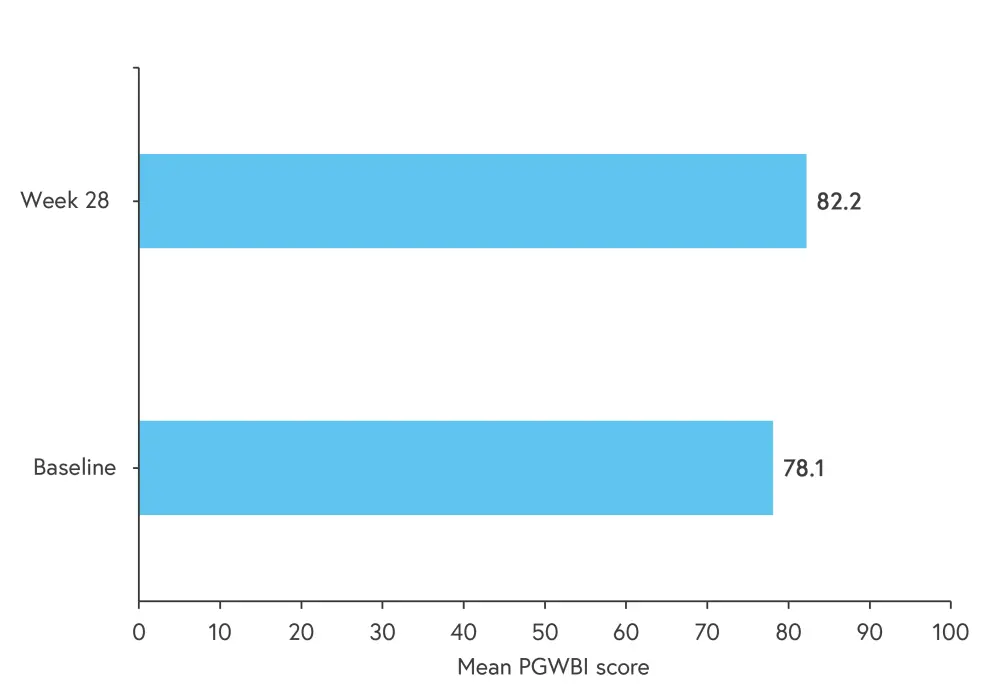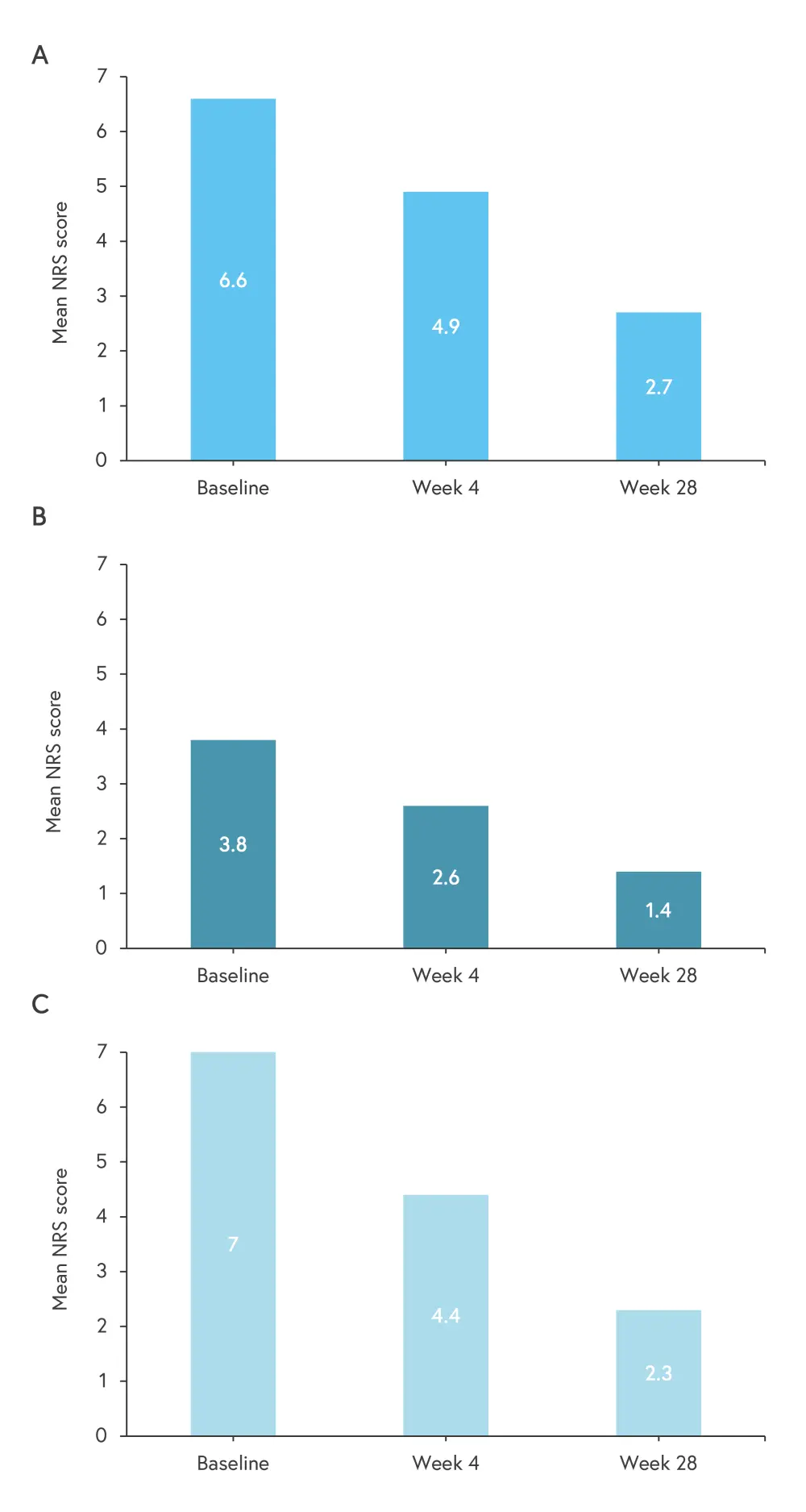All content on this site is intended for healthcare professionals only. By acknowledging this message and accessing the information on this website you are confirming that you are a Healthcare Professional.
The pso Hub website uses a third-party service provided by Google that dynamically translates web content. Translations are machine generated, so may not be an exact or complete translation, and the pso Hub cannot guarantee the accuracy of translated content. The pso and its employees will not be liable for any direct, indirect, or consequential damages (even if foreseeable) resulting from use of the Google Translate feature. For further support with Google Translate, visit Google Translate Help.
The PsOPsA Hub is an independent medical education platform, supported by educational grants. We would like to express our gratitude to the following companies for their support: UCB, for website development, launch, and ongoing maintenance; UCB, for educational content and news updates. Funders are allowed no direct influence on our content. The levels of sponsorship listed are reflective of the amount of funding given.
Now you can support HCPs in making informed decisions for their patients
Your contribution helps us continuously deliver expertly curated content to HCPs worldwide. You will also have the opportunity to make a content suggestion for consideration and receive updates on the impact contributions are making to our content.
Find out more
Create an account and access these new features:
Bookmark content to read later
Select your specific areas of interest
View psoriasis and psoriatic arthritis content recommended for you
Impact of tildrakizumab on HRQoL in patients with psoriasis: real-world Week 28 analysis
Do you know... According to a real-world analysis by Bhatia et al., using tildrakizumab to treat patients with moderate-to-severe plaque psoriasis has shown statistically significant improvements from baseline in measure of health-related quality of life.
Tildrakizumab, a monoclonal antibody that targets interleukin-23 p19, is used to treat adult patients with moderate-to-severe plaque psoriasis who qualify for systemic therapy or phototherapy.1 Symptoms of psoriasis have negative effects on patients’ sleep and rest and place limitations on their daily activities, including mobility, which can affect mental health and wellbeing.1 Here, we summarize a Week 28 interim analysis of health-related quality of life (HRQoL) and patient-reported outcomes from a phase IV, real-world study (NCT03718299) of tildrakizumab in patients with moderate-to-severe psoriasis.1
Study design1
This 64-week uncontrolled, open-label multicenter study included 53 patients aged ≥18 years who were immunocompetent and had moderate-to-severe plaque psoriasis affecting ≥3% of total body surface area. Patients received 100 mg of tildrakizumab at Weeks 0, 4, and every 12 weeks thereafter up to Week 52.
The Psychological General Well-Being Index (PGWBI) and Dermatology Life Quality Index (DLQI) were used to measure patients HRQoL at baseline and Weeks 4, 8, 12, 16, and 28. The PGWBI includes 22 questions that represent six domains, including anxiety, depressed mood, positive well-being, self-control, general health, and vitality. The DLQI was used to assess patients’ perception of symptoms, feelings, daily activities, leisure activities, work or school, personal relationships, and treatment. The study’s primary efficacy endpoint was a change in HRQoL as measured by the change from baseline in PGWBI at Week 28. Key secondary outcomes included change from baseline in DLQI, safety, and patient-reported severity of itch, pain, and scaling.
Key findings1
Of the 55 patients enrolled in this study, 53 were assessed for PGWBI, DLQI, and itch, pain, and scaling severity. The primary endpoint of the study was met, with a mean absolute change from baseline of 3.7 (p = 0.033) in PGWBI at Week 28 (Figure 1).
Figure 1. Change from baseline in total PGWBI score at Week 28 in patients treated with tildrakizumab*

PGWBI, Psychological General Well-Being Index.
*Adapted from Bhatia, et al.1
Changes for each PGWBI domain from baseline to Week 28 are shown in Table 1. Notably, the changes in anxiety and vitality domain scores were not statistically significant.
Table 1. Change from baseline in PGWBI domain score to Week 28*
|
PGWBI, Psychological General Well-Being Index; SD, standard deviation. |
||
|
PGWBI domain |
Mean absolute change (SD) |
Mean percentage change, % |
|---|---|---|
|
Positive wellbeing |
1.0 (2.9) |
13.0 (p = 0.018) |
|
General health |
1.5 (2.2) |
20.0 (p < 0.001) |
|
Anxiety |
0.7 (3.7) |
8.6 (p = 0.174) |
|
Vitality |
0.6 (2.6) |
7.9 (p = 0.097) |
|
Depressed mood |
0.0 (2.3) |
— |
|
Self-control |
0.0 (2.2) |
— |
The mean DLQI score decreased from 9.4 (standard deviation [SD], 5.2) at baseline to 1.7 (SD, 1.9) at Week 28 with mean absolute change being −7.6 (SD, 5.1) and mean percentage change being −76.5% (p < 0.001). Mean patient-reported scores for itch, pain, and scaling from baseline to Week 28 are shown in Figure 2.
Figure 2. NRS scores for A itch, B pain, and C scaling in patients treated with tildrakizumab from baseline to Week 28*

NRS, numerical rating scale; PRO; patient-reported outcome.
*Adapted from Bhatia, et al.1
Individual numerical rating scale instruments for itch, pain, and scaling are self-administered 11-point scales; scores ranged from 0 to 10, with higher scores indicating worse symptoms.
Table 2 shows treatment-emergent adverse events measured at Weeks 4, 8, 12, 16, and 28.
Table 2. TEAEs in patients treated with tildrakizumab*
|
TEAE, treatment-emergent adverse event. |
|
|
TEAE, % |
N = 52 |
|---|---|
|
Total |
56.4 |
|
Serious |
5.5 |
|
Treatment-related |
1.8 |
|
Skin and subcutaneous tissue disorders |
20 |
|
Infections and infestations |
14.5 |
|
Musculoskeletal and connective tissue disorder |
10.9 |
Conclusion
In this Week 28 interim analysis of real-world data, tildrakizumab treatment resulted in statistically significant improvements from baseline in measures of patient-reported outcomes and HRQoL in adult patients with moderate-to-severe plaque psoriasis.1 Clinical studies of biologics have highlighted the importance of improving psoriasis symptoms to achieve successful outcomes. Longer-term studies and additional real-world data are needed to guide healthcare professionals in making optimal treatment decisions to improve HRQoL in patients with psoriasis.
References
Please indicate your level of agreement with the following statements:
The content was clear and easy to understand
The content addressed the learning objectives
The content was relevant to my practice
I will change my clinical practice as a result of this content
Your opinion matters
On average, how many patients with psoriatic arthritis do you see per month?



